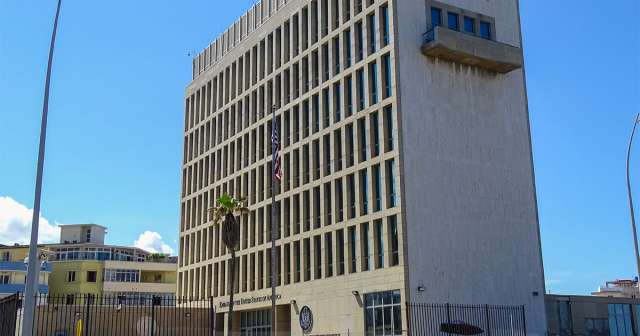The diplomat Benjamin G. Ziff, chargé d'affaires at the United States Embassy in Cuba, concluded his mission in Havana and bid farewell with an emotional video in which he shares part of his experience on the Caribbean island.
"In Cuba, I have experienced unforgettable moments. I leave the island with a tremendous impression of how beautiful Cuba is, and how beautiful its people are," Ziff began, speaking in a video shared on the social media of the U.S. diplomatic mission in the Cuban capital.
According to the diplomat's statements, during the years he spent on the island and through his position, he helped rebuild the embassy, its staff, and its activities. “We have begun to expand our cultural and artistic relationship with the people.”
He also highlighted the return of the migrant visa application process at the consulate in Havana as a significant achievement of his administration, a request from many Cubans wishing to emigrate to the United States. "We work every day to expand legal and safe migration pathways," he stated.
Regarding the private sector on the island, he noted that it has been a challenging task to provide opportunities for those who choose to start their own businesses in Cuba. "We believe it is the solution for the prosperity and future of the Cuban people," he stated.
Ziff officially took office on July 14, 2022, succeeding Timothy Zúñiga-Brown, who completed his mission after serving in the position since July 2020.
Before arriving in Havana, his extensive experience included serving as the director of the Migration Task Force at the Office of Western Hemisphere Affairs of the State Department, where he was responsible for coordinating hemispheric migration policy and strategy for that federal agency until 2021.
In the course of his duties on the island, he participated in several meetings on migration issues between Washington and Havana, amid one of the largest migration crises that Cuba has experienced.
Additionally, during his tenure, the United States Embassy building in Havana began a renovation project costing 28 million dollars, after being closed for nearly five years due to the so-called "Havana Syndrome." However, the execution has faced obstacles due to logistical issues and political tensions with the Cuban regime.
"The important aspect of diplomacy is that it isn't just about politics; it's also about logistics. You need to have a presence. You need to have people. You need to have a building," Ziff told Reuters at that time.
This year, the Ministry of Foreign Affairs of Cuba (MINREX) summoned him for consultations to express concern over the protests that took place in Santiago de Cuba, which was the epicenter, and in other cities across the country during the month of March.
Due to these demonstrations, the Cuban government accused the United States of funding the mobilization of dissenters and issuing "slanderous messages... regarding internal matters of Cuban reality."
Ziff was the seventeenth chief of the U.S. mission in Havana since its reopening in 1977.
The head of the diplomatic mission in Havana does not hold the rank of ambassador because the United States Senate has not confirmed the appointment to that position since the reopening of the legation in 2015. Following Biden's arrival at the White House, the nomination of an ambassador to Cuba has not been a priority.
What do you think?
COMMENTFiled under:
